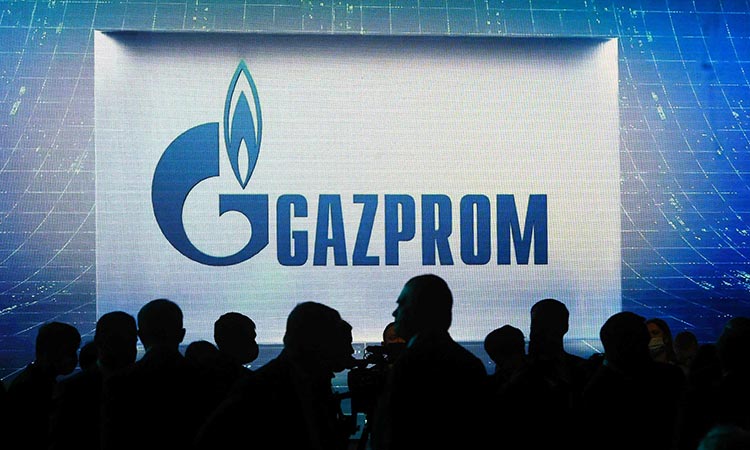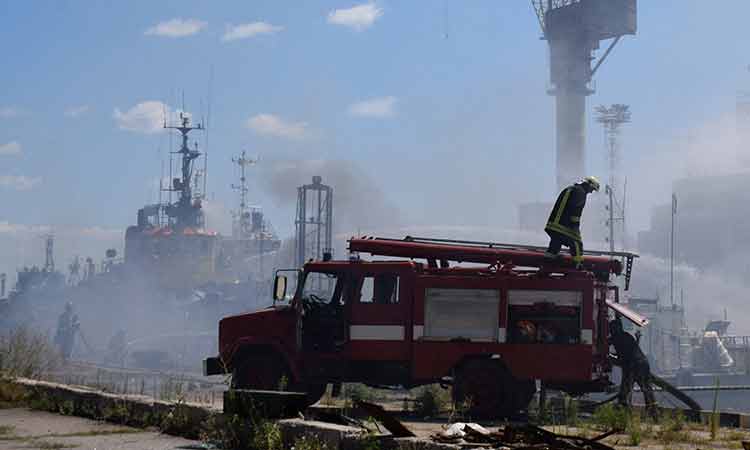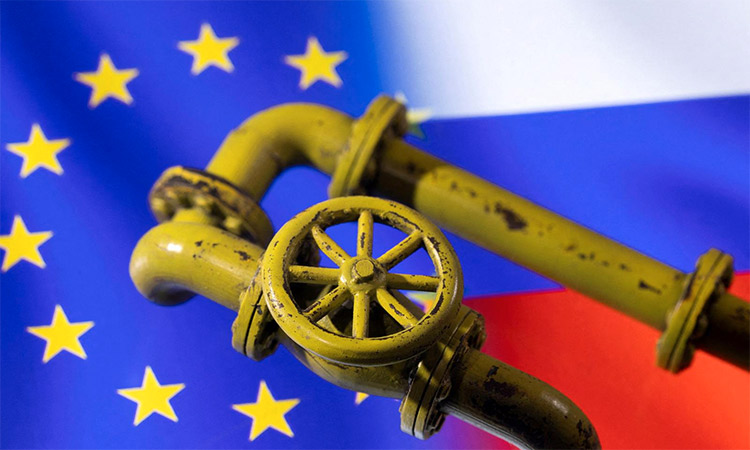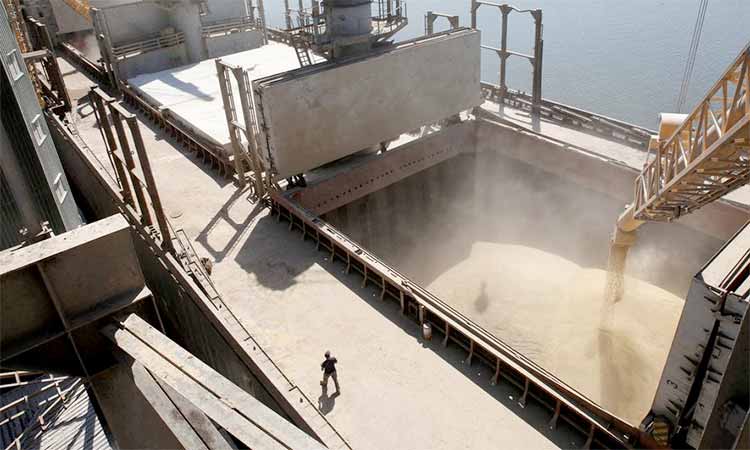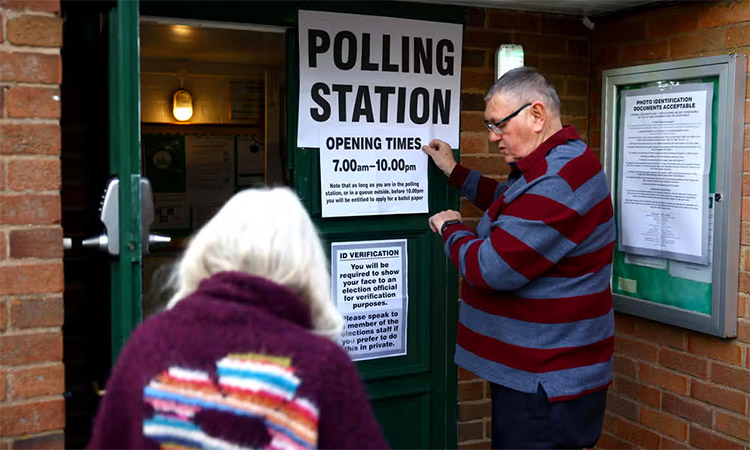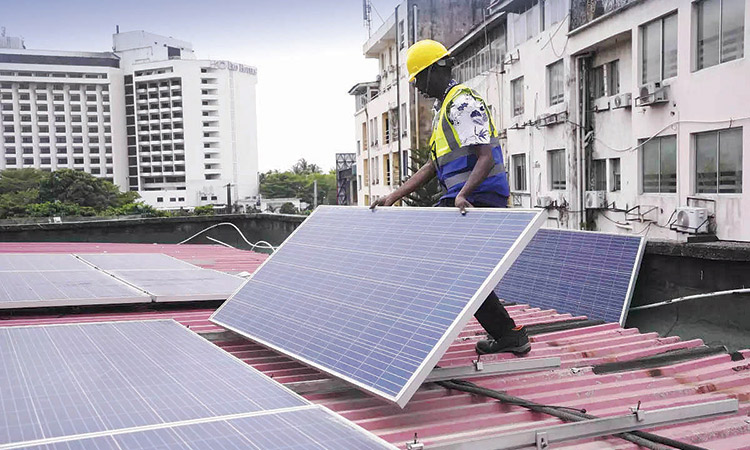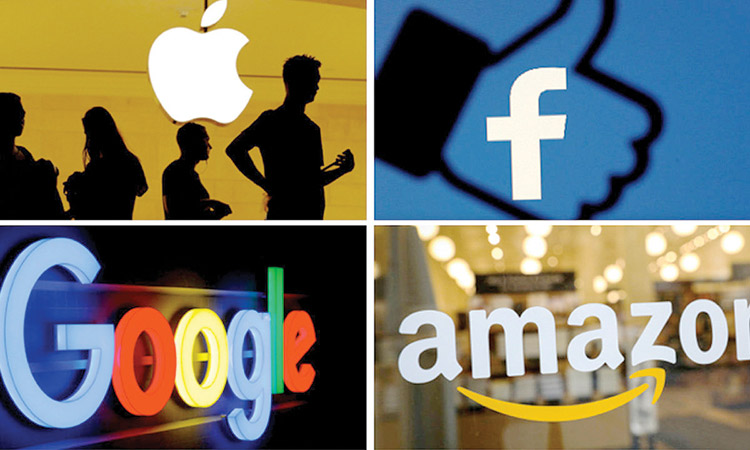Ukraine’s EU supporters feel economic pinch
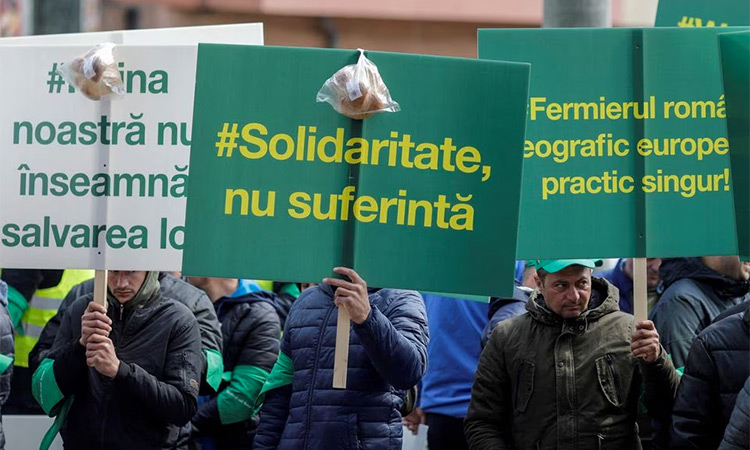
Romanian farmers holding a placard that reads "Solidarity, not suffering!" protest outside the European Commission's Offices over the price of grains and demand fallout from having an influx of cheap Ukrainian grains in Bucharest, Romania. Reuters
Ukraine is forced to send its grain to neighbouring east European countries because it has not been able to export its agricultural products from Black Sea ports to Lebanon and Egypt and other North African countries because the Russians have blockaded the movement of Ukrainian ships since the outbreak of war last February. Though Turkey and the United Nations have mediated an agreement for allowing the Ukrainian grain exports in November last and the agreement is waiting to be renewed, the burden is then falling on the EU members. And it can be seen that it is creating a market crisis. Poland and other countries were not supposed to be using Ukrainian grain in the local markets but to facilitate the movement of the grain to the Middle East and North Africa, but government agencies buying the Ukrainian grain at cheap prices have sold it to local customers. Even if Poland and other east European nations were to allow Ukrainian grain to pass through to the Middle East and North Africa, the prices would be higher at the end-point because of the long detour, and it would burden the consumers.
The question for Europe is not just giving military aid to Ukraine to fight the Russians, and this has not been an easy thing to do either – Poland is to send MiG 29 fighter jets to Ukraine and Germany has agreed to it – support for Ukraine is turning out to be a complicated issue. The top EU leaders like European Commission President Ursula von der Leyen and many Members of the European Union Parliament are vocal in their desire to fight Russia, but on the ground it is not a simple affair. The war in Ukraine is affecting Europeans beyond the issue of opposing Russian autocracy and defending the freedom of Ukraine.
As there seems to be no immediate prospect of a ceasefire or of a peace deal between Ukraine and Russia, there is a sense of uncertainty in the rest of Europe as to how long they would have to extend support to Ukraine and how, whether it is through military and financial aid or through support to Ukrainian agricultural exports. There is a fervent plea from Ukraine that it needs support on all fronts. Ukraine’s Ministry of Agrarian Policy and Food, responding to the Polish decision on restricting Ukrainian food imports, said it “regrets the decision of its Polish counterparts” and stated, “Polish farmers are facing a difficult situation, but we emphasise that Ukrainian farmers are facing the most difficult situation.” It is a desperate plea from the Ukrainians that they need help from Europe to fight Russia. But it is doubtful whether Europe can sustain the burden of the war for too long because in the short term as well as in the long term, each country in the EU has to look after its own national needs. And this might even mean that they would not be able to maintain the sanctions against Russia. Whatever the ideological and strategic differences between Russia and Europe, especially East European countries which once belonged to the communist Russian bloc, are dependent on Russia at the economic level, especially gas supplies.
